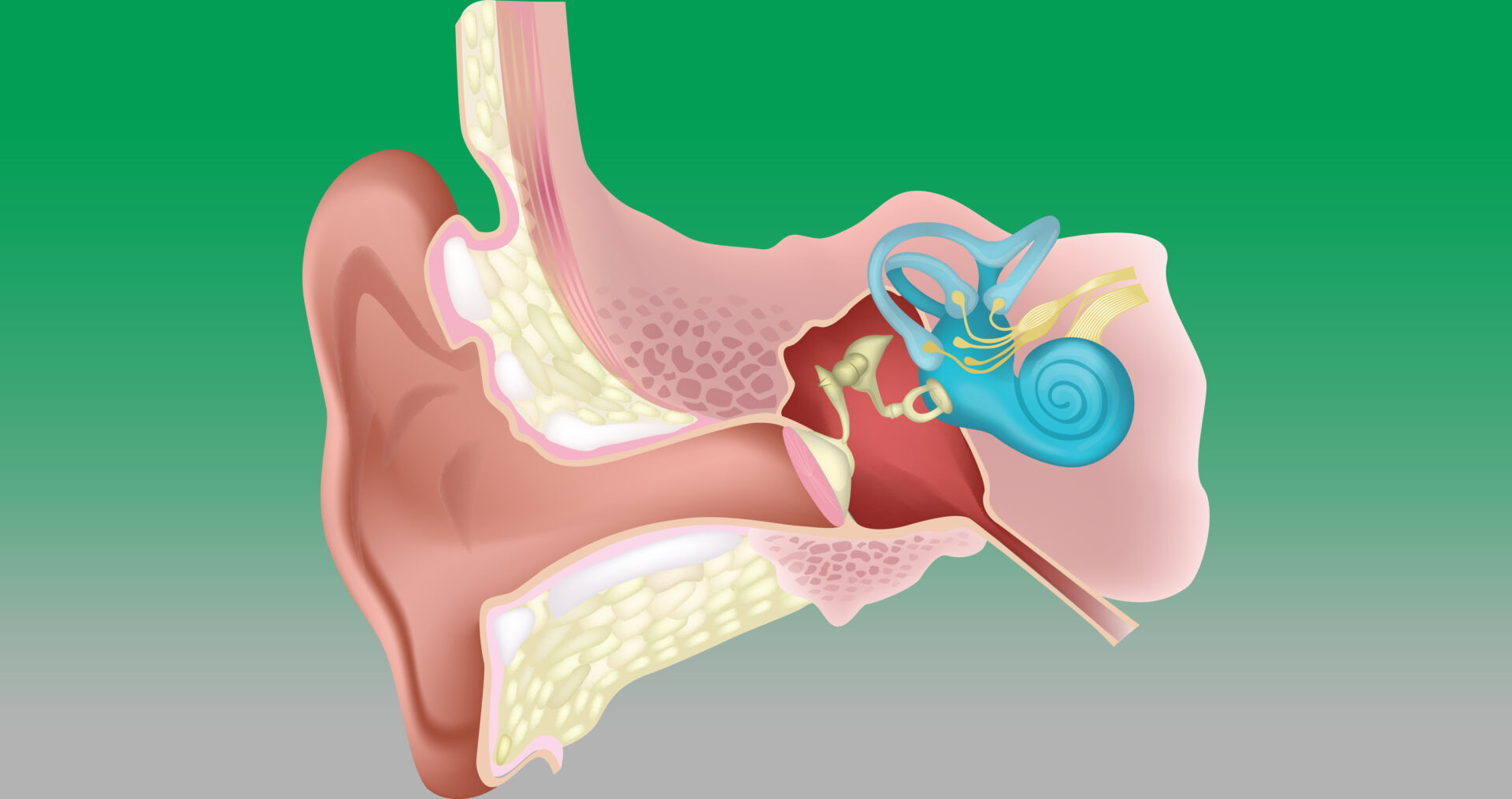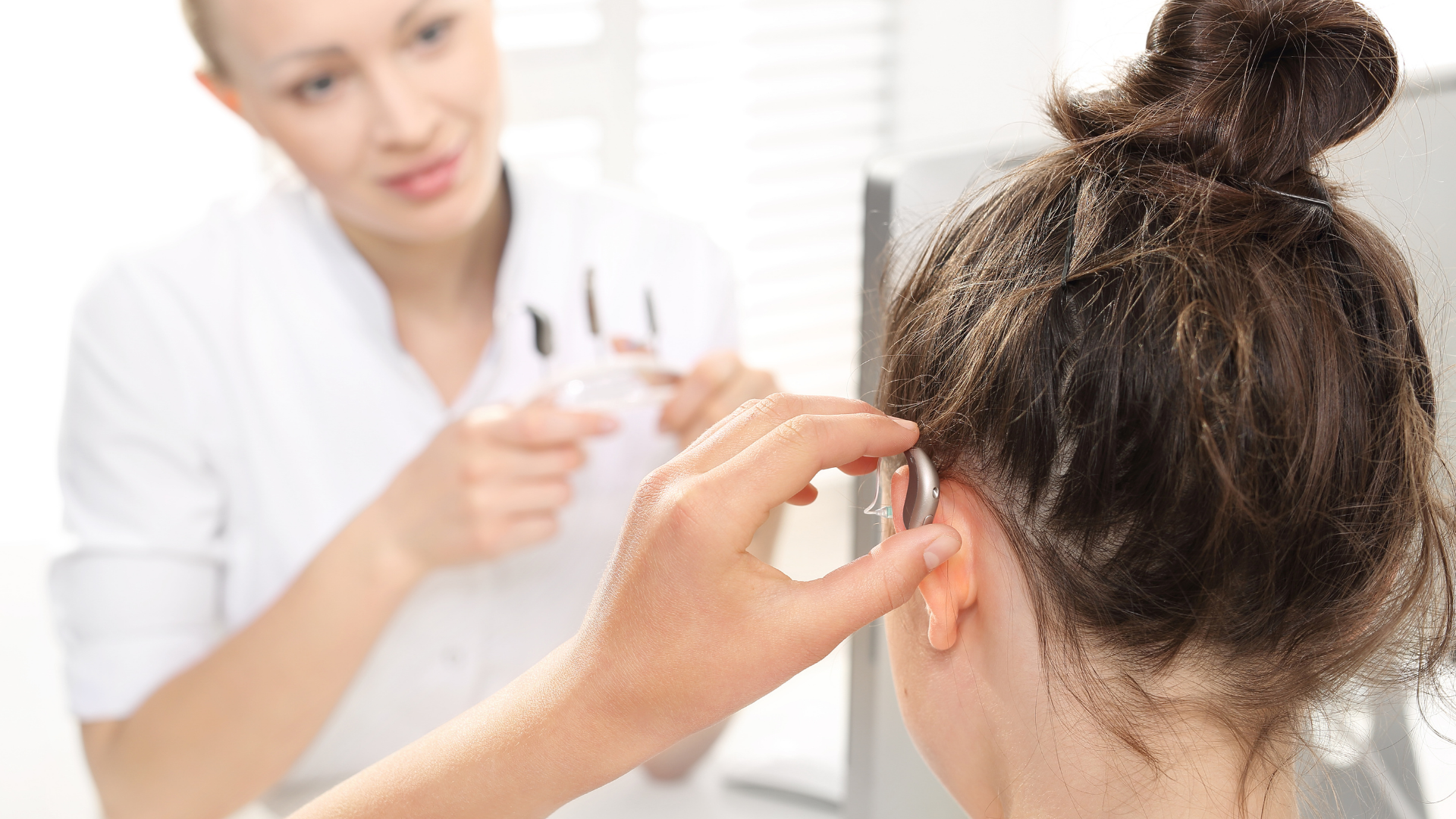This week is Balance Awareness Week, dedicated to raising awareness about balance disorders and how they impact people’s lives. One factor, often overlooked is the impact of hearing loss on balance. We may often more readily associate sight or touch with loss of balance rather than hearing, however, they are interconnected more than you may realise. In fact, individuals aged 40-69 with mild hearing loss are reportedly three times more likely to fall than those without hearing loss.
This blog will discuss how your hearing impacts your balance and how hearing aids can provide support for those struggling with balance difficulties.
What is Hearing Loss?
Hearing loss can be categorised into two different kinds; conductive hearing loss and sensorineural hearing loss.
Conductive hearing loss occurs when sound energy can’t reach the cochlea (the inner ear), usually due to a blockage in the ear canal such as earwax. Conductive hearing loss can usually be improved in most cases with earwax removal treatments.
Sensorineural hearing loss, on the other hand, happens when the auditory nerve or the tiny hair cells inside the inner ear are damaged. This type of hearing loss usually occurs with ageing but can also occur as a result of injury. The hair cells in your cochlea are needed to convert sound vibrations into energy for the brain to register. When damage occurs to these hairs, the brain is no longer able to register sound, resulting in hearing loss.
Problems with the inner ear tend to result in more side effects associated with hearing loss – such as balance difficulties.

What is the Inner Ear?
We’ve mentioned a couple of times about ‘the inner ear’. But what does this mean? Well, the inner ear is comprised of two components; the cochlea and the vestibular system. The cochlea is the hearing portion of the inner ear, whereas the vestibular system relates to the balance portion.
As we’ve said, the cochlea contains tiny hair cells that convert sound waves into energy for the brain to register. The vestibular system on the other hand contains semicircular canals that are all filled with fluid. They are responsible for detecting rotational movements of your head. Combining both aspects of the inner ear is down to the auditory nerve. This nerve carries both hearing and balance information to the brain.
To break it down, when something goes wrong in one part of the inner ear, there can be a knock-on effect in the other part. Now let’s explore how to deal with hearing and balance loss.
How are Hearing Loss and Balance connected?
Now we understand how hearing and balance work in tandem in the same part of the ear, we can understand how one can have an effect on the other.
With hearing loss comes less auditory input. Subtle sounds in your environment can be lost, meaning it becomes more difficult to have situational awareness. A lack of awareness of your environment can make you more susceptible to tripping or falling, even more so if your environment is noisy.
Hearing loss can also make sound localisation more difficult. The inability to determine where a sound is coming from can decrease your situational awareness and make adjusting much harder.
Aside from the physical aspect of hearing loss and balance, there is often a huge mental load to bear with hearing loss. Trying to focus on understanding speech, or sounds in your environment 100% of the time can be tiring. Focusing too much on your hearing can take the place of your focus spent on balancing, leading to instability.
Similarly, hearing loss can be socially isolating, leading to either mental health conditions such as depression or anxiety, or a more sedentary lifestyle. Both of these may lead to a loss in physical activity and increased muscle weakness. Weaker muscles will make balance more difficult, and may even lead to more falls.
What are some Inner Ear conditions?
There are various conditions associated with problems within the inner ear.
One condition, known as Meniere’s disease (or Endolymphatic Hydrops), can cause dizziness, vertigo, and tinnitus along with hearing loss. These symptoms occur due to a heightened pressure within the vestibular system. Meniere’s disease is often only associated with one ear and there is unfortunately no cure.
Vestibular neuronitis is a condition that occurs when the labyrinth (a structure inside the inner ear) becomes inflamed and swollen. The symptoms include vertigo and nausea feelings, however, omit hearing loss. This condition can become Labyrinthitis, however, if hearing loss does occur.
For most people, these conditions can be cured, but in severe cases, lasting damage will be felt.

How to Deal with Hearing and Balance Loss?
If you find yourself losing your balance often, perhaps tripping or feeling nauseous more than usual, then your hearing may be decreasing.
The first point of treatment may be hearing aids. Tackling the initial issue with hearing may see great improvement in your balance. At Hearing Therapy, we offer a range of the latest in hearing aid technology, with plenty of stylish models to choose from. Hearing aids help with sound localisation and auditory input, aiding in improving your balance.
Making adjustments to your lifestyle may also help with dealing with loss of hearing and balance. Staying active and social will improve your overall well-being, with a knock-on effect on your balance.
In some cases, medical intervention or medication may be required to help restore hearing or manage symptoms associated with balance disorders. Therapy options may also be beneficial for dealing with some side effects of balance disorders, such as tinnitus therapy.
If you or anyone you know is struggling with hearing loss and/or balance difficulties, consider booking an appointment with a specialist audiologist to start receiving treatment.
Hearing Therapy offers you a solution to managing hearing loss, whether mild or severe, with expert advice and aftercare to ensure you are living life to the fullest.
Contact us to book your appointment today and take the first step towards better hearing.
